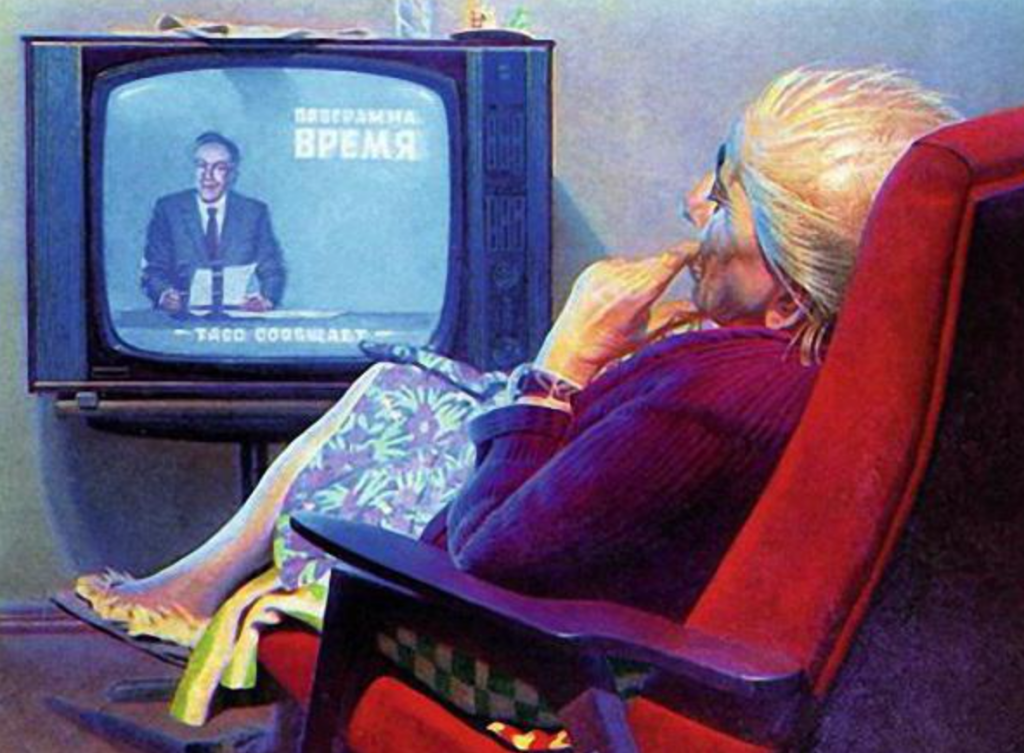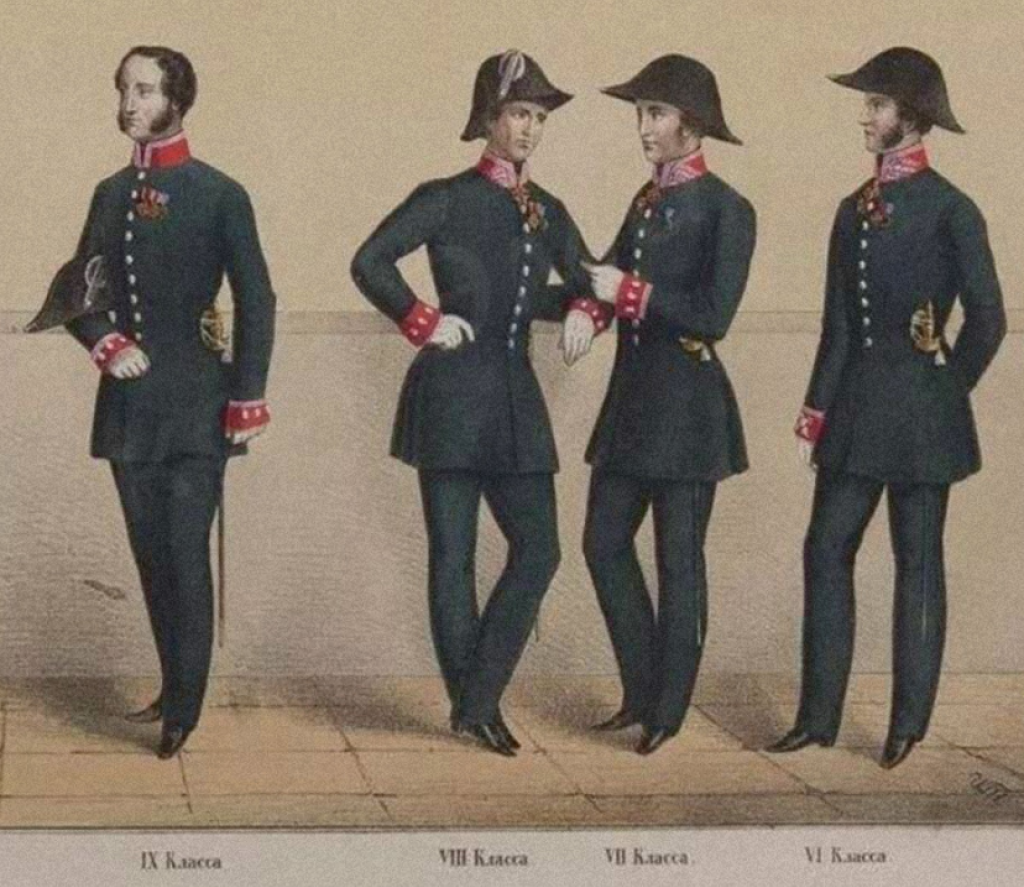Above: A promotional image for the fourth season of the series Silver Spoon [Mazhor], 2014-present
Sergey Toymentsev is Assistant Professor of Russian at Saint Louis University.
Western academics commonly to refer to systematic violations of rule of law in contemporary Russia, most prominently the persecutions of Mikhail Khodorkovsky and the members of Pussy Riot, on the one hand, and the annexation of Crimea, on the other. For most Russians, however, these examples ironically stand for the triumph of law and justice: Crimea is ours, they’d say, and as for Khodorkovsky, Tolokonnikova, and the rest, well, they deserved their time in jail. Nevertheless, we might observe what I call a “legal nihilism”in the Russian legal imagination. In addition to a lack of respect for the law as such, "legal nihilism" entails citizen disbelief in law enforcement's ability either to formally prosecute crime or protect society from criminals.
In his oft-cited first speech during the 2008 presidential election campaign, Dmitry Medvedev stated that “without exaggeration, Russia is a country of legal nihilism," adding that "no other European country can boast of such a level of disregard for law.” As Kathryn Hendley confirms, “Everyone from Medvedev to the taxi drivers I encounter in my field work in Russia is convinced that legal nihilism is endemic in Russia.” The extraordinary abundance of Russian crime dramas about police illegality and vigilante justice shouldn’t come as a surprise. There are so many of them that even Vladimir Putin lamented that Russian television should produce more shows about history and culture instead. In this post, I will show how the representation of law and justice in Russian crime dramas — and especially their inability to offer a positive image of universally applied law of the Western type — vividly illustrates pervasive legal nihilism in Putin’s Russia.
The Elusive "Good Cop"
The positive TV image of a morally upright yet relatable police officer, poses a problem for producers and viewers alike. There are certainly "good cops" on Russian crime shows, but they are so exceptional that their presence only confirms their fictional nature. For example, good cop Dymov from the police series Cops/ Менты (1998-2019) is not even presented as Russian, instead nicknamed "Samurai" for his interest in Japanese culture and penchant for martial arts. Another good cop, Divov, from The Last Cop/ Последний мент (2015-2017), spent 20 years in a coma before resuming his duties in contemporary Moscow.
The same holds for Pavel Derevyanko’s character in Dark Side of the Moon/ Обратная сторона Луны (2012-2018), who must travel back in time to the Soviet Union to apply his phenomenal detective skills. Where he is not a literal anachronism, the Russian good cop, though trained in Moscow, is often assigned to work in the middle of nowhere, Siberia or the Far North, where rule of law never fails to triumph — such is the case in By the Book/ Всё по закону (2016).
Another typical "good cop" trait is childhood trauma or mental illness, as in The Method/Метод (2015-2020), which motivates him or her to become a police officer — suggesting that no one would ever do this were they in their right mind. Yet the most cynical and ironic image of a good cop is that of a young, reckless billionaire who joins law enforcement just for the fun of it, as in Silver Spoon/ Мажор (2014- ) or Policeman from Rubliovka /Полицейский с Рублёвки (2016-2020).
In Russian crime series, therefore, the representation of good cops is always displaced in terms of nationality, historical time, geographical determinants, mental health, and economic status, which testifies to the fact that all endeavors to cure legal nihilism in Russian society consistently end up in legal idealism.
Glukhar’, Police Illegality, and Vigilante Justice
One of the most successful representations of a police officer can be found in Glukhar’ (2008-2011), a cop show that foregrounds the police detective Sergei Glukhariov via the carefully balanced agglomeration of both negative and positive characteristics. Glukhar', as he is known, takes bribes; occasionally tortures suspects or punishes the guilty in vigilante fashion; drinks to excess with friends; and has an affair with his boss. At the same time, the hero displays genuine enthusiasm for helping ordinary people both within and outside the law. As the show repeatedly demonstrates through its perfectly imperfect protagonist, the law is too inhuman, abstract, impersonal, and insensitive to actual community needs. It must therefore be bent, contextualized, particularized, and eventually adapted to a more individualized sense of justice.
Glukhar’s creator, Ilya Kulikov, used to translate American shows before writing scripts for Russian television. Accordingly, his other crime shows, such as The Sword/ Меч (2009-2015) and Karpov (2012-2014), further exploit the Western vigilante cop narrative tradition. Yet in Kulikov's creations, the protagonist leaves law enforcement and becomes a vigilante hero on his own. Initiated by Gosha Kutsenko’s character in Anti-Killer (2002), the vigilante ex-cop character has since been recycled in numerous series and is one of the most popular tropes in Russian crime drama and television today. Operating at the intersection of law and lawlessness, such a hero is essentially a trickster navigating between corrupt police and gangsters, unable to join either side. At the same time, he exhibits an intense sense of justice that governs his idiosyncratic implementation of the law. Kulikov’s vigilante ex-cop, for example, is a sociopath with an individualistic dream of universal justice who positions himself as a killing machine in a world of unbounded evil.
Thieves' Law, God's Law
Another form of alternative justice is offered by shows that propagate the old-style criminal code of conduct (vorovskoi zakon) via their criminal-authority protagonists. Like their Western counterparts such as The Godfather (1972-1990) or The Sopranos (1999-2007), Russian shows like Teacher in Law/ Учитель в законе (2007-2016) or Son for the Father/ Сын за отца (2014) are suffused with nostalgic longing for the hegemony of patriarchal law, exemplified by a strong father figure. Here, the Russian thief-in-law is idealized as the only steadfast proponent of moral standards amid the chaos of pervasive ethical and legal nihilism. Such idealizations are on the rise as old-school, ascetic thieves-in-law face extinction in Putin's Russia, where most of them have either successfully integrated their criminal activity into legal business or given way to post-Soviet gangsters of a new type. The anachronistic Russian "Godfather," excessively self-important on screen yet increasingly impotent in reality, emblematizes Russians’ anxieties concerning legal nihilism.
God's law (Bozhiy zakon), meanwhile, is another venue for alternative justice in contemporary Russia, most bizarrely represented in Father Mathew/ Отец Матвей (2014). Inspired by the British show Father Brown (2013-2022), the series features a priest-cum-detective preaching how religious faith, rather than the law, can help potential criminals stay out of trouble. The difference between the two shows, however, is that the former is a period drama set in the 1950s, whereas the latter is set in today’s Russia — where the police is incredibly ineffective, rule of law is uncertain at best, and one indeed has to rely on God in order to live as a law-abiding citizen.
Genre-wise, nothing new has been invented in recent Russian crime dramas in terms of representations of law and illegality. Rather than deriving from Russia’s empirical context, such representations borrow from Western entertainment formats, which Russian creators hope will yield higher TV ratings. The popularity of illegal forms of justice in British and American media achieved its apex during the (comparatively) crime-ridden 1970s and 1980s; this explosion of "alternative justice" themes was, at the time, symptomatic of Western anxieties about society’s inability to fight urban crime by legal means. By adopting outdated Western media tropes, Russian television unconsciously reproduces similar anxieties about the impotence of law in the face of violence.



